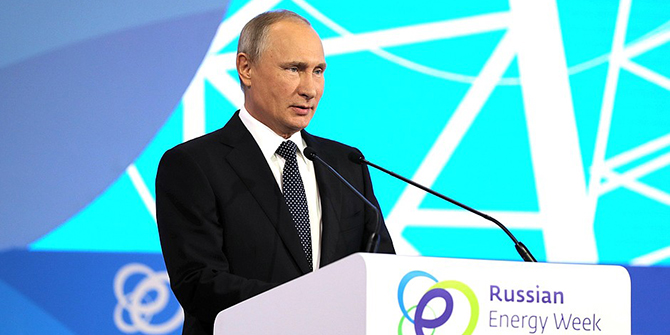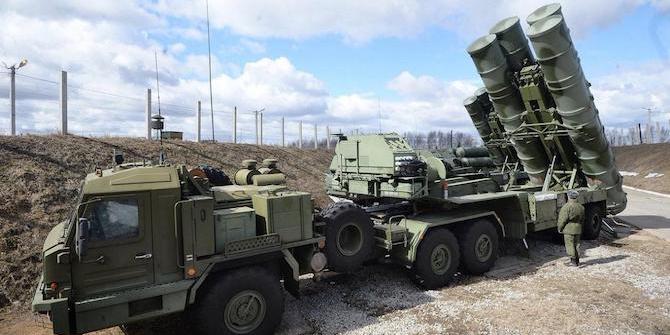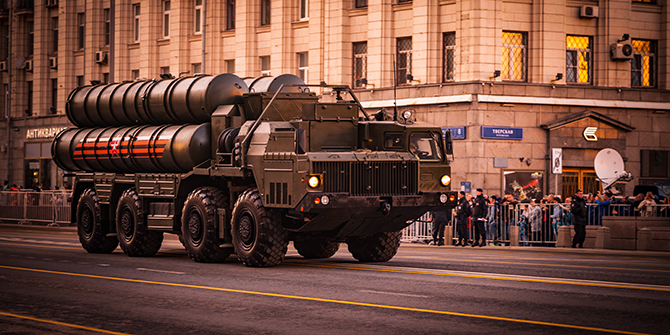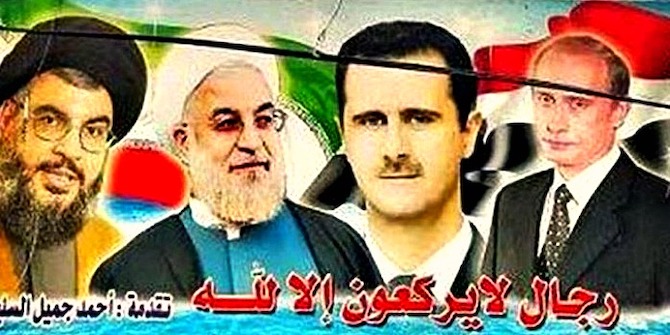by Diana Galeeva

Moscow’s policies towards the Middle East in 2020 can be characterised as largely predictable. Moscow continued balancing between perceived rivals and adversaries, while maintaining working relations with all sides. Such pragmatism was mainly linked to countering the Western position in the Middle East. For example, despite good relations with Israel and the UAE (and with other Gulf states supporting the deal), Moscow responded cautiously to the Abraham Accords that normalised relations between Tel Aviv and Abu Dhabi, emphasising that the Middle East’s stability depends on resolving the ‘Palestinian problem’. This response was involved in maintaining relations with Iran, as part of how strained relations between Iran and the US further strengthened Moscow-Tehran relations in reaction.
2020 also brought challenges for continuing relations with all sides, particularly for the talks with Saudi Arabia to balance oil markets. The energy market was shocked by the substantial drop in oil prices caused by Saudi’s response to Moscow’s refusal to reduce oil production in March. Moscow’s determination to sustain working relation amid such disagreements became visible by October (indicating also positive signs for further productive relations in 2021). After discussing the OPEC+ agreement reached by the officials of the group, the Kremlin stated that ‘both sides reiterated their readiness for further close coordination in this area in the interest of maintaining stability in the world energy market’. Brent crude has been largely trading between $40–45 since July, capped by the impact of the coronavirus outbreak on global energy demand, and supported by the OPEC+ production cut.
Despite some challenges, Moscow’s careful calibration on all sides was particularly fruitful in Libya in 2020. Beginning in January, when Moscow brokered talks between the two factions in the Libyan civil war – the Government of National Accord (GNA) of Fayez al-Sarraj and the Libyan National Army under Khalifa Haftar. This is not a coincidence, with Russia continuing its policy of balancing between adversaries in Libya. With the existing myth, born after his 2016 visits to Moscow, of Haftar as a Libyan Bashar al-Assad, speculations emerged that Russia had agreed to supply the strongman with weapons in exchange for a naval base in Tobruk or Benghazi. At the same time, the Sarraj government was invited to represent Libya at the 2019 Russia-Africa conference in Sochi, keeping channels open with both sides.
Despite the failure to secure a ceasefire, 2020 was successful in terms of further Russian expansion on the Libyan front. Economically, for example, Russia facilitated the lifting of the embargo on the Libyan oil sector. Russia’s Sergey Lavrov confirmed this during his interview with Russian and foreign media in November 2020, where he stated that Moscow invited all parties in order to help them to reach an agreement on resuming oil trade. He announced Moscow’s dealings with Libya’s National Oil Corporation, the Libyan government and the parliament. An example of this cooperation is Rosneft and Libya’s National Oil corporation (NOC) 2017 agreement on oil exploration and production. Regarding the impact of the 2020 deal on global oil market, prices and energy carriers, ‘doubtless, there is such an impact’, concluded the Foreign Minister. Moreover, importantly, Marianna Belenkaya of the Kommersant publishing house noted that Moscow’s involvement in ‘the war may have been the thing that renewed Washington’s attention on Libya’ in 2020, calculating Washington’s concerns about Russia’s expanding political and military influence there. As Moscow’s policy goals rely on balancing the West and learning from 2020, it should not surprise onlookers that Russia will continue to grow its presence in Libya in 2021.
Russia’s counter-balancing of the West is particularly visible in its intervention in the Syrian civil war, the fifth anniversary of which passed in September 2020. Since 2015, direct engagement has increased, with the shift to military intervention a notable turning point. Moscow positioned itself alongside the Assad regime, supplying weapons, oil investments and naval access, and presenting this as striking back against radical Islamist groups. Importantly, Russia’s policies in Syria continued to assist Moscow’s ‘return’ to the Middle East, with the goal of regaining its ‘great power’ status. While forming a key plank in its countering of Western interests, Russia’s relations with all sides in the Middle East, and parties both directly and indirectly involved in the war over the last five years, will guide the continuation of Moscow’s policies going forward. Despite the challenging impact of COVID-19 and the drop in oil prices that have marked 2020, Moscow will not change course in 2021.





